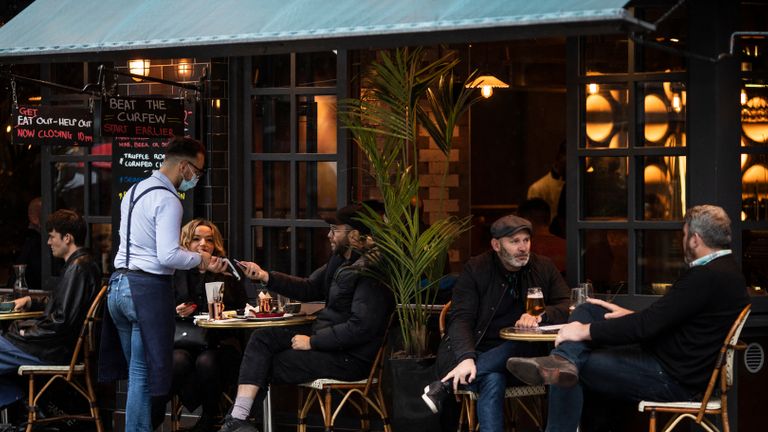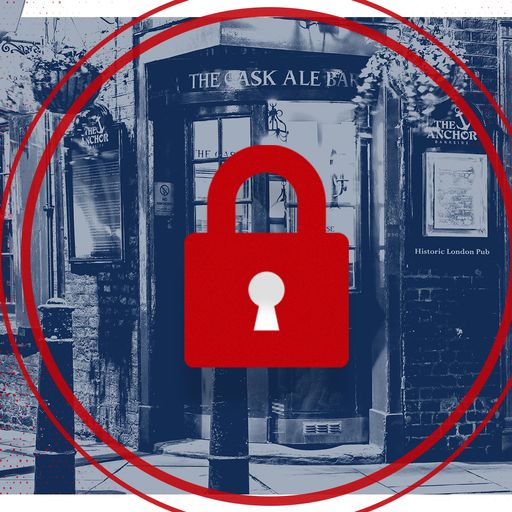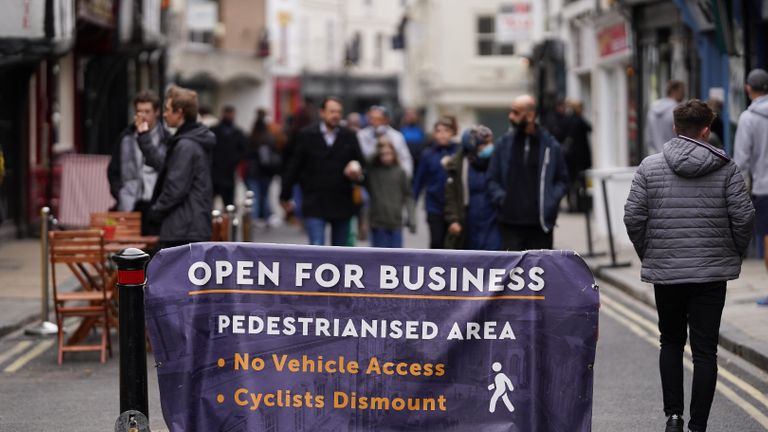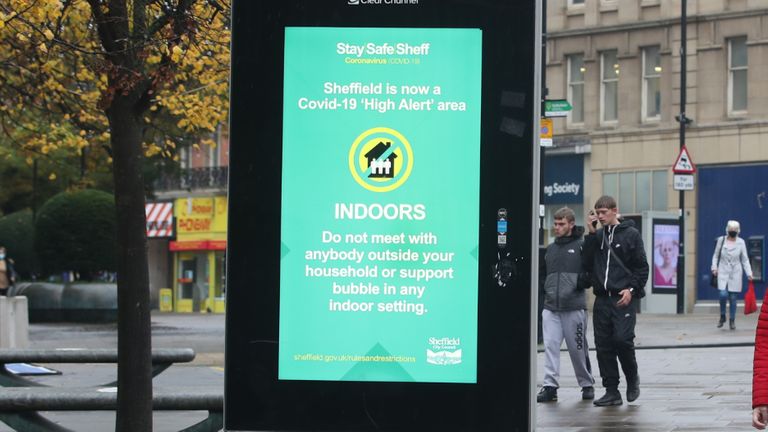Chancellor Rishi Sunak has vowed to “go further” as he announced three new measures to help workers and businesses get through the winter and a coronavirus second spike.
Speaking in the House of Commons, he said cash grants of up to £2,100 a month will be given to firms in Tier 2 areas – enough for all affected hospitality, accommodation and leisure premises.
They will be retrospective, so any region which has been under enhanced restrictions can backdate their claim to August.
For self-employed people, the size of the grant they can access will also be doubled to £3,750 – with the amount of average profits they can claim for rising from 20% to 40%.
And there will be changes to the Job Support Scheme, which is for companies experiencing lower demand due to the COVID-19 outbreak.
Employees will only need to work 20% of their normal hours – instead of the original 33% – to be eligible.
And the government will significantly reduce the amount employers have to contribute – from 33% to 5%.
“The scheme will apply to eligible businesses in all alert levels,” Mr Sunak confirmed.
“So businesses that are not closed but face higher restrictions – in places like Liverpool, Lancashire, South Yorkshire and Greater Manchester as well as the devolved nations – will be able to access greater support.”
Mr Sunak explained he was making the changes because: “It is clear that even businesses that can stay open are facing profound uncertainty.”
He continued: “This is our plan. A plan for jobs, for businesses, for the regions, for the economy, for the country. A plan to support the British people.”
But Anneliese Dodds, Labour’s shadow chancellor, said she had been calling for the government to “get ahead of the looming unemployment crisis and act to save jobs” for months.
“Instead, we’ve had a patchwork of poor ideas rushed out at the last minute,” she added, suggesting some people had already lost their jobs because of the chancellor’s “inaction”.
The wrath of mayors representing regions which are going into Tier 3 – the highest band of coronavirus restrictions in England – was also stirred.
Andy Burnham, mayor of Greater Manchester, said he could “barely believe what I’m reading”.
“Why on earth was this not put on the table on Tuesday to reach an agreement with us?” he asked, referencing the breakdown in talks between local leaders and the government earlier this week.
“I said directly to the PM that a deal was there to be done if it took into account the effects on GM businesses of three months in Tier 2.”
Sir Richard Leese, leader of Manchester City Council, tweeted: “Looks like Rishi Sunak is agreeing with Greater Manchester Leaders. Pity he couldn’t have done it two weeks ago.”
And Liverpool City Region mayor said: “It’s a shame that it took London coming under further measures for the chancellor to take action to support jobs and businesses.”
Though the moves were welcomed by Dame Carolyn Fairbairn, chair of the Confederation of British Industry.
She said they would “do even more to protect people’s livelihoods” and that firms will be “relieved to see that anomaly” of hospitality firms in Tier 2 which were getting “little extra support” coming to an end.
“This is a big step towards a more standardised approach of support for areas going into Tiers 2 and 3 and those businesses that face tough times who operate within them,” she added.
Analysis: By Sky News political correspondent Joe Pike
More government cash is always welcome, especially by businesses under Tier 2 restrictions which feel they have been starved of custom but received little financial support.
Yet Labour’s problem is the timing: arguing jobs would have been saved if Rishi Sunak had acted faster.
Among the announcements, the chancellor is overhauling his Job Support Scheme by reducing employer contributions from 33% to just 5%. This is significant and the Resolution Foundation think tank argues it could transform the programme from being flawed to being workable.
If the announcement tells us anything, it’s that it is impossible for Rishi Sunak to plan in the medium or long term.
He is beholden to the virus and the economic mess it leaves in its wake.
This was the chancellor’s third economic support package in a month.
It may not be his last.





